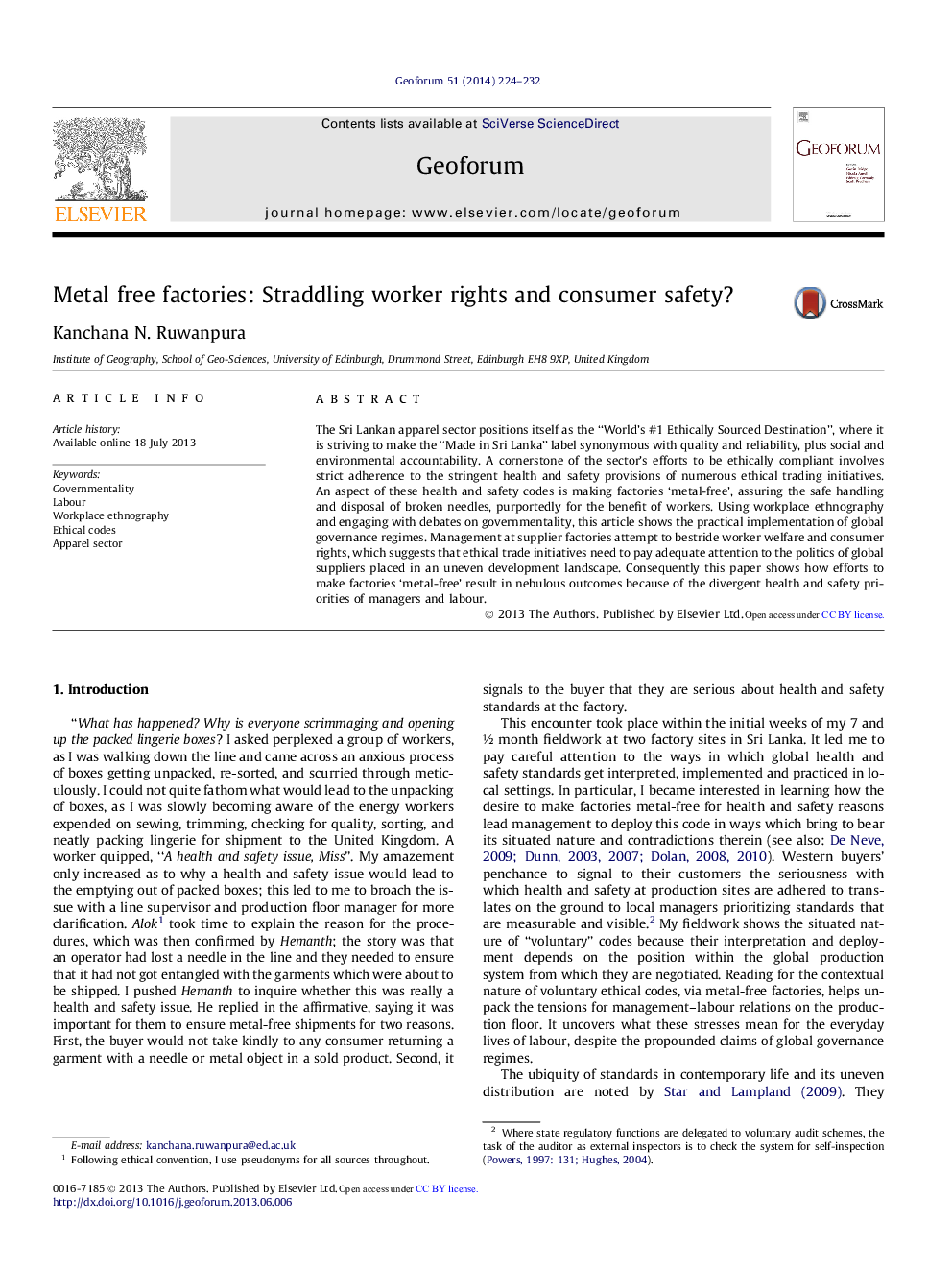| Article ID | Journal | Published Year | Pages | File Type |
|---|---|---|---|---|
| 5073914 | Geoforum | 2014 | 9 Pages |
⢓Made in Sri Lanka” label: synonymous with social and environmental accountability.â¢Apparel industries ethical compliance with stringent health and safety standards.â¢Making factories metal-free and how it is negotiated by management and labour.â¢Deploying governmentality to appreciate how auditing take a life of their own.â¢Tensions and competing agendas in a landscape of inequity and uneven development.
The Sri Lankan apparel sector positions itself as the “World's #1 Ethically Sourced Destination”, where it is striving to make the “Made in Sri Lanka” label synonymous with quality and reliability, plus social and environmental accountability. A cornerstone of the sector's efforts to be ethically compliant involves strict adherence to the stringent health and safety provisions of numerous ethical trading initiatives. An aspect of these health and safety codes is making factories 'metal-free', assuring the safe handling and disposal of broken needles, purportedly for the benefit of workers. Using workplace ethnography and engaging with debates on governmentality, this article shows the practical implementation of global governance regimes. Management at supplier factories attempt to bestride worker welfare and consumer rights, which suggests that ethical trade initiatives need to pay adequate attention to the politics of global suppliers placed in an uneven development landscape. Consequently this paper shows how efforts to make factories 'metal-free' result in nebulous outcomes because of the divergent health and safety priorities of managers and labour.
